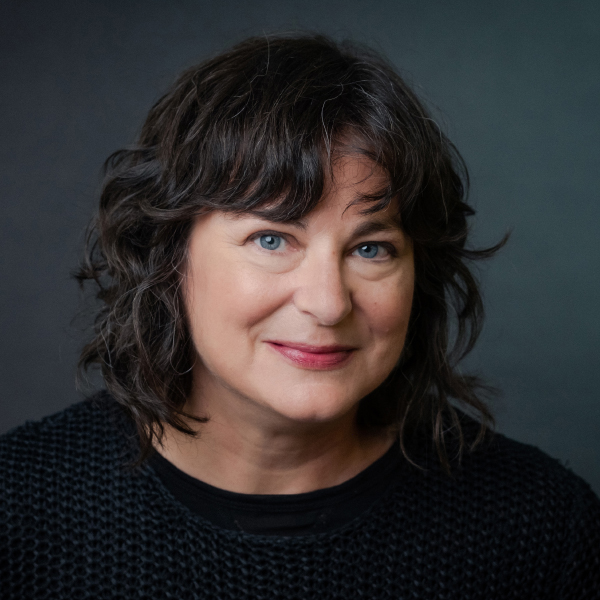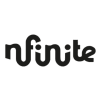Retailers and brands have ushered in Black History Month 2021 with an unprecedented barrage of announcements that address systemic racism within their own businesses, welcome Black entrepreneurs and employees to their ranks, and get Black-owned brands onto their shelves.
Following the killing of George Floyd last summer and a stream of other reports of police brutality, along with the fresh attention in 2020 on several high-profile incidents of racial injustice, there appears to be a "moral consensus" among retailers that ingrained racial inequities must be addressed, according to Jade Sykes, president of Diversify Retail, a nonprofit that advises BlPOC (Black, Indigenous and people of color) brands on working with retailers.
Black History Month initiatives span category and company size, with major department stores like Macy's and Nordstrom, big box retailers like Target and Walmart, and specialty players like Best Buy and Gap Inc. announcing plans, many of them on or around Feb. 1, to promote diversity within their ranks and assortments.
Such action has become mandatory, in that consumers of many demographics are demanding businesses step up their efforts to be inclusive, at many levels. But it remains to be seen how many retailers expand their focus beyond February.
"We work with brands that have been approached by major retailers since June, after the death of George Floyd," Sykes said by phone. "A lot of vendors were given orders to get things in for Black History Month. There's a lot of weight on the brand to take that opportunity. Meanwhile these retailers know supply chain very well, but there's no process for that — that's what's missing."
How it started
The push for diversity among vendors has been spurred in large part by efforts like the 15 Percent Pledge, devised last year by fashion designer Aurora James, who called on retailers to dedicate 15% of their shelf space to selling Black-owned brands. On Feb. 1, Gap Inc. was the latest to join, with a committment to "increase their pipeline programs by 15 percent to drive access and opportunity for the Black community within the Gap Inc. family of brands starting with early empowerment programs, including internship, externship, apprenticeship, and training." Gap is also donating $200,000 to the organization. Other participants include retailers Sephora (among the first), Crate and Barrel, Macy's, Madewell, Rent the Runway, MedMen, West Elm, Yelp and Indigo Books & Music, and magazines Vogue U.S. and InStyle U.S.
As highlighted by James, Black-owned brands are largely locked out of retail. According to a study released in January by beauty retailer Sephora, that shows up in many ways. Most shoppers (74%) in its survey said that marketing doesn't showcase diverse skin tones, body types and hair textures, especially at department stores (72%), beauty brands (70%), apparel (69%), and mass merchants (67%). And most (65%) also said that stores fail to offer products for different shoppers' needs, especially across mass merchants (63%), hardware (62%), beauty (60%) and outdoor/recreation (60%).
The pledge is not designed to be a mere marketing ploy or limited to Black History Month, however, James said. "While Black History Month is a great opportunity for retailers and consumers to support Black-owned small businesses, these efforts must remain a priority throughout the entire year," she said by email. "At the Pledge, we partner with companies who take this commitment seriously. We offer them clear, viable opportunities to invest in Black businesses and creatives, while tailoring a partnership to their specific needs. Simultaneously, we're working to ensure the Black businesses gaining investment are set up for success."
Other avenues
The 15 Percent Pledge list has grown since its summer launch, but isn't yet very long, as some retailers take other avenues or go it alone. Walmart, for example, emphasized big dollar donations, saying this week that it will dispense the first $14.3 million to 16 nonprofits that address racial disparities in the U.S., part of its commitment announced in June to give $100 million over five years. Best Buy is giving $44 million to expand college prep and career opportunities for BIPOC students, including adding 16 scholarships for students at Historically Black Colleges and Universities.
Macy's, which did take the pledge, also noted that last year it "donated more than $2.5 million to Black community organizations funding a spectrum of programs," including at the 15 Percent Pledge, the Black Retail Action Group, NAACP and The National Urban League, among others. Ulta this week said over $25 million will go toward diversity and inclusion, including doubling what it spends on media across endemic and multicultural platforms to $20 million; doubling the number of Black-owned brands in its assortment by the end of the year; dedicating $4 million to promoting Black-owned brands; and investing $2 million in inclusivity and unconscious bias trainings for store associates.
L'Oréal USA and the NAACP created the Inclusive Beauty Fund, through which the beauty juggernaut "will award 30 one-time grants of $10,000 each to Black-owned small businesses, Black entrepreneurs, and professional services in all sectors of the U.S. beauty industry."
A few retailers had the Black creatives within their own companies or communities develop programs and drops for Black History Month. Sock startup Bombas, for example, released the Black Hive Collection, "designed and brought to life by the company's Black Hive — a collective of its Black-identifying employees." Similarly, Under Armour unveiled UNDR ARMR x DVNLLN, "an employee-led capsule collection celebrating the resilience of Black culture through sports in the company's hometown of Baltimore," according to an emailed press release. The project involves local photographer and activist Devin Allen, who first picked up a camera in 2015, during demonstrations over the death of Freddie Gray in Baltimore police custody.
Streetwear retailer DTLR is showcasing Black-owned businesses in Atlanta, Baltimore, Chicago, Cleveland, Detroit, Miami and Richmond, Virginia, promoting them and their wares on its social media platforms, on DTLR Radio and in stores. The retailer is also sponsoring an art contest, according to an emailed release.
Some retailers that haven't signed a pledge nevertheless say they're diversifying their assortments. Nordstrom is expanding its inclusive beauty offer, including bringing on new Black-founded brands, launching a sustainable home goods and apparel brand created by Black designers and launching a national retail platform "for designers, creatives and thought leaders across varied perspectives and experiences representing Black culture." Southern department store Belk launched a shop featuring items that "supports and celebrates underrepresented communities year-round" and that is curated by its Black business resource group, according to a company release.
How it's going
In the last half year, there's been a scramble to augment assortments with merchandise from a more diverse set of makers and suppliers. That's been a challenge for many because some retailers, including national ones like department stores, are failing to give onboarding the resources, attention and follow-through it requires, according to Diversify Retail's Sykes.
The spotlight shone by the Black Lives Matter protests of the summer has created an opportunity that these brands are eager to embrace, though not all want the specialized merchandising play, Sykes said. "A lot of these brands don't necessarily want to be part of your Black-owned category — they want to be a part of your assortment and be marketed like you market anyone," she said. "It's always difficult for a brand to be onboarded by a retailer, but especially when you're under this microscope."
"These brands deserve the platform, but we want it to be normalized so it's not just a rush to stock your shelves for Black History Month. We want to talk about a long-term partnership, and they'll say, 'Can you clarify what you mean by long term?'"

Jade Sykes
President, Diversify Retail
Sykes and her team, thanks to their own decades of retail and supply chain experience, have been able to ensure that the necessary conversations take place. But she called the process with some retailers "really difficult and disappointing," comparing it to "getting an invite with no one at the door to welcome you in."
"These brands deserve the platform, but we want it to be normalized so it's not just a rush to stock your shelves for Black History Month," she said. "We want to talk about a long-term partnership, and they'll say, 'Can you clarify what you mean by long term?' My worry is that if those brands don't sell well, they'll never be bought again, never to be seen again because there's not a long-term commitment to working with them."
How it should go
It's pretty clear when a retailer's recruitment of Black-owned brands goes beyond optics, not only because the conversations go a certain way, but also because of the time brands are given to scale, according to Pernell Cezar, co-founder and CEO of BLK & Bold, a Black-owned, B Corp. coffee brand sold at Target, Amazon, Whole Foods, Hy-Vee and other grocers to be announced later this year.
Cezar worked at Target for years before founding the brand, including in product development, so already understood first hand many of the supply chain demands of working with a major retailer. The mass merchant had a deal with BLK & Bold before last year, and demonstrated its commitment by allowing for frank conversations about expectations and capabilities on both sides, making for what Cezar calls a "mutual pace of sustainable success."
"This was pre-2020, with so much overt focus on supporting Black-owned businesses," he said. "Then layer in 2020, and there's added support because a retailer like Target has leaned into it ... with amplified resources."
Mutual success requires supply chain teams and executive leadership that themselves are part of diverse teams, all working with intention, say both Sykes and Cezar. Among the retailers with plans to diversify across their organizations are Best Buy, Gap Inc. and Nordstrom.
Systemic change takes time and intention, and sometimes a push, according to James, Sykes and Cezar.
"Behind the scenes, our partners are creating programs that are designed to support Black small business owners and aid them in their growth strategy," James said. "We work with these retailers every step of the way — and that is why every partnership looks a bit different. Real structural change takes time, and we will continue to hold these companies accountable to their unique goals."
It takes recognizing that your customers are diverse, as well, according to Sykes and Cezar.
"For my time in retail, one of the things I've seen continue to evolve is the representation of the decision maker, reflecting the core consumer, valuing the diversity of the consumer base," Cezar said, noting that Black women-owned beauty brands are increasingly finding success in what is a competitive segment. "We're not short on products in this space, it's a matter of how they build the pipeline to be successful."














